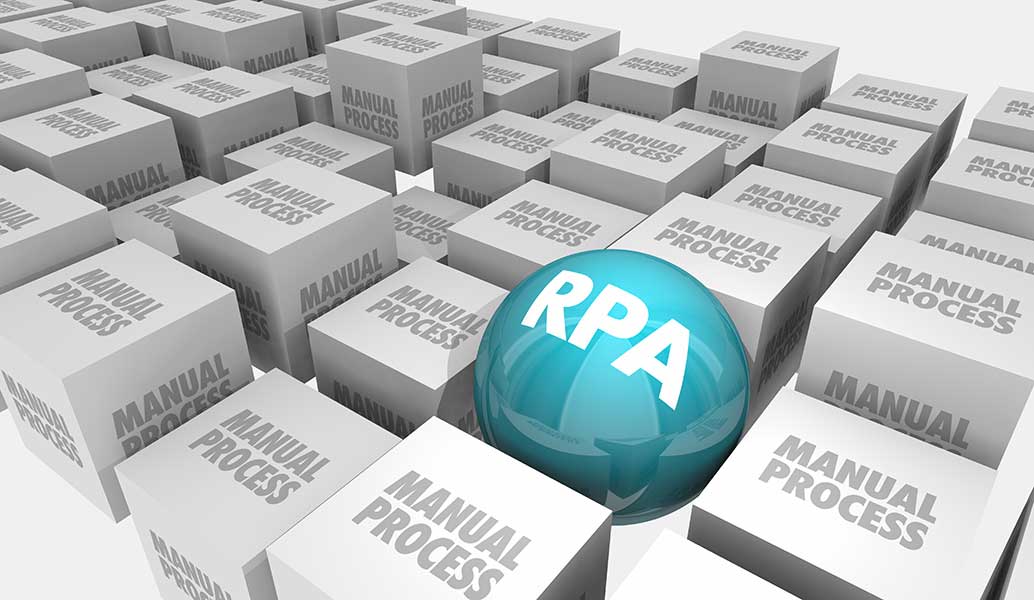advertisement
Turning RPA into a digital business automation platform
Robotic Process Automation (RPA) is not about industrial automation alone, it is about eliminating repetitive, onerous tasks to enable employees…

Robotic Process Automation (RPA) is not about industrial automation alone, it is about eliminating repetitive, onerous tasks to enable employees to focus on more valuable business activities that require true, human intervention.
This can be described as an augmented workplace or one in which people and technology join forces to create something greater than either could do on their own. Organisations of every type are harnessing the power of technology to extend and enhance human capabilities in ways that help employees to be more productive.
Concurrently, this enables people to transfer lower-skilled tasks to machines, so they can focus their efforts on the high-value and creative tasks, which leads to improved efficiency, as well as the accuracy and reliability of work outcomes.
advertisement
So says Bradley McCulloch, Business Head for IBM at Axiz, SA’s leading value added ICT distributor. “All organisations who are looking to boost efficiency in their processes should be investigating RPA, to reduce cost, speed up outcomes and have a better customer service experience all around.”
He says RPA can be defined as a tool that enables the business to capture employee inputs in rules-based processes and then use software to automate those inputs. “It is an extremely efficient way of automating those repetitive tasks within a workflow in a way that fits in organically with current working practices as well as the preferences of employees themselves.”
However, he says not all RPA tools are created equal. “Viewing RPA as a standalone, technology-only solution is a mistake. Unfortunately, few vendors have designed their solutions with a broader view of all the technologies available to them. While RPA alone can be valuable, what is infinitely more so, is a platform that can handle content management, decision making, tasks, and workflows. What is needed is a true, digital business automation platform.”
advertisement
That is what IBM brings to the table.
“IBM Robotic Process Automation with Automation Anywhere, which is part of the IBM Automation Platform for Digital Business, increases the value of stand-alone RPA tools. It leverages the platform to augment task automation with additional automation capabilities, enabling RPA bots to orchestrate workflows, integrate with business rules and decisions, manage content and capture data. This is what truly sets it apart from its competitors.”
McCulloch says the platform helps businesses address their immediate task automation requirements and use the additional automation capabilities to make their RPA bots smarter, more agile and better able to help them achieve their business objectives.
advertisement
One major objective for all businesses, he says, is digital transformation, and an RPA journey is intrinsically connected to this. “Driving strategic, enterprise-wide change is the sign of any successful RPA implementation. RPA has the power to augment and free up resources, completely redefining the standards of speed and efficiency, as well as significantly change the way the organisations operate.”
According to him, RPA enables the automation of a number of other tasks too, including monitoring customer activities for opportunities to upsell, as well as preparing data for customer subscription renewals. It can also help manage marketing campaigns by collecting data through web scraping and help to get the right information out to assist with marketing and sales activities.
Bots can also be programmed to monitor the policy status of your customer base, and identify gaps and opportunities for bundles or discounts, which will enable the business to send targeted communications to maximise opportunities.
Moreover, RPA can replace troubleshooting that is reactive in nature, with the proactive identification of any challenges, allowing issues to be resolved before they become a problem for the business.
“RPA also has a crucial role to play in alleviating the enormous administrative burden that our stringent regulatory environment has placed on businesses. Think about POPIA and its comprehensive policy to promote advanced data review rights and consent management. This is going to see a tidal wave of requests drowning every business, which will drive operational costs up. RPA tools can capture and interpret the data, action what is necessary, and provide appropriate responses.”
The use cases for RPA are endless, and one thing is certain, he ends. “Businesses who outperform their competitors are the ones that strive to continuously to improve how they do business, and that is what RPA is all about.”